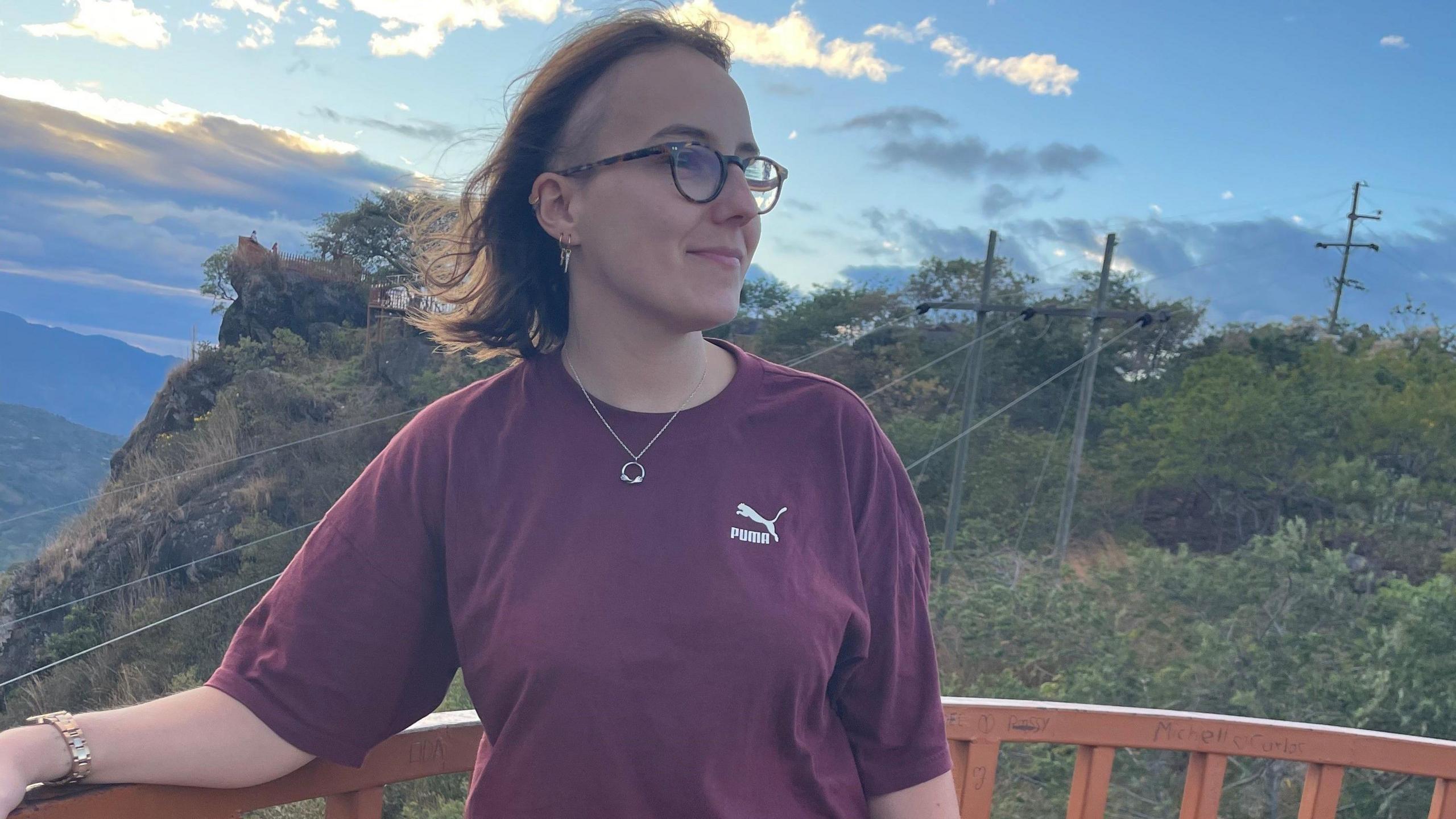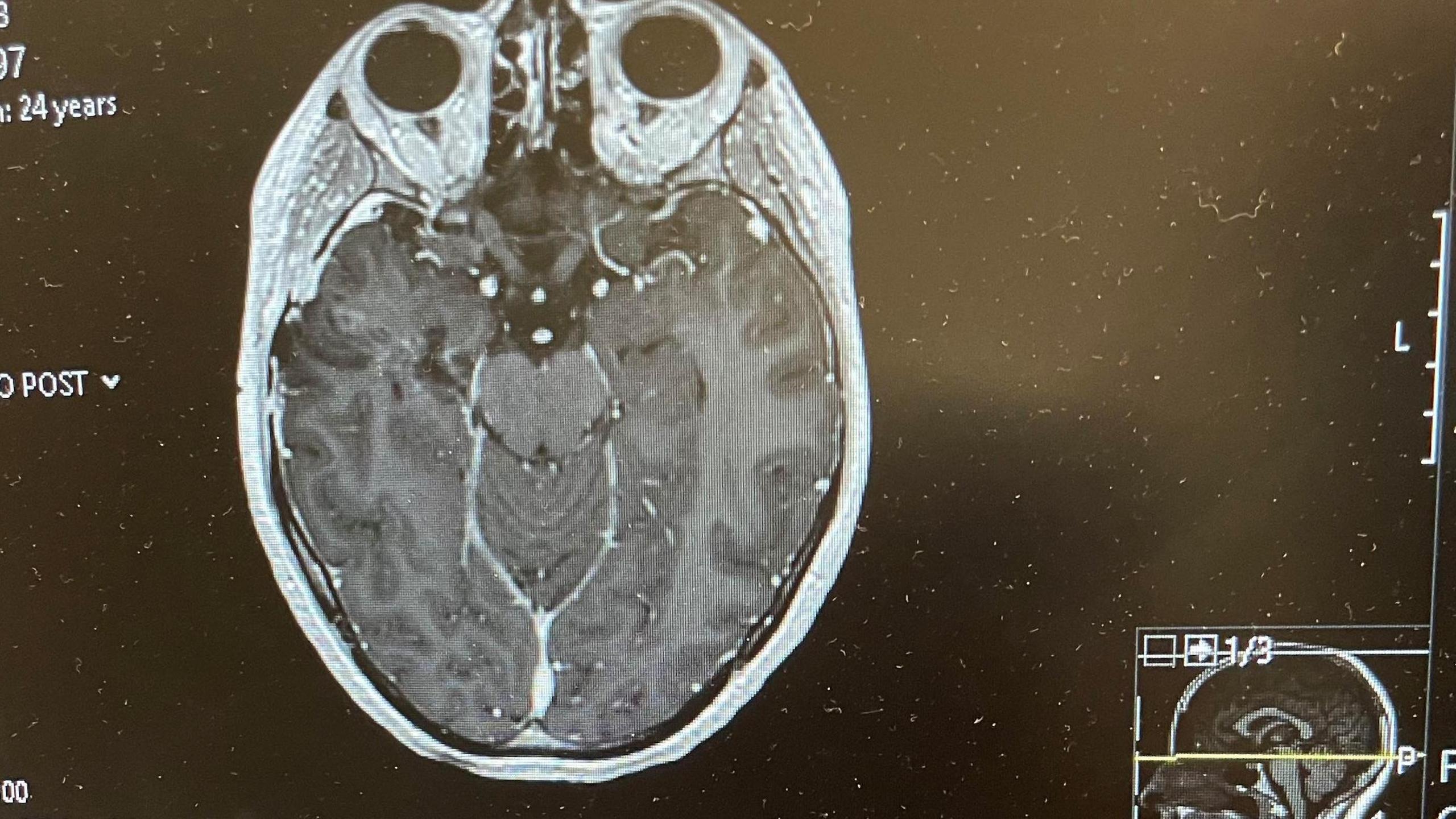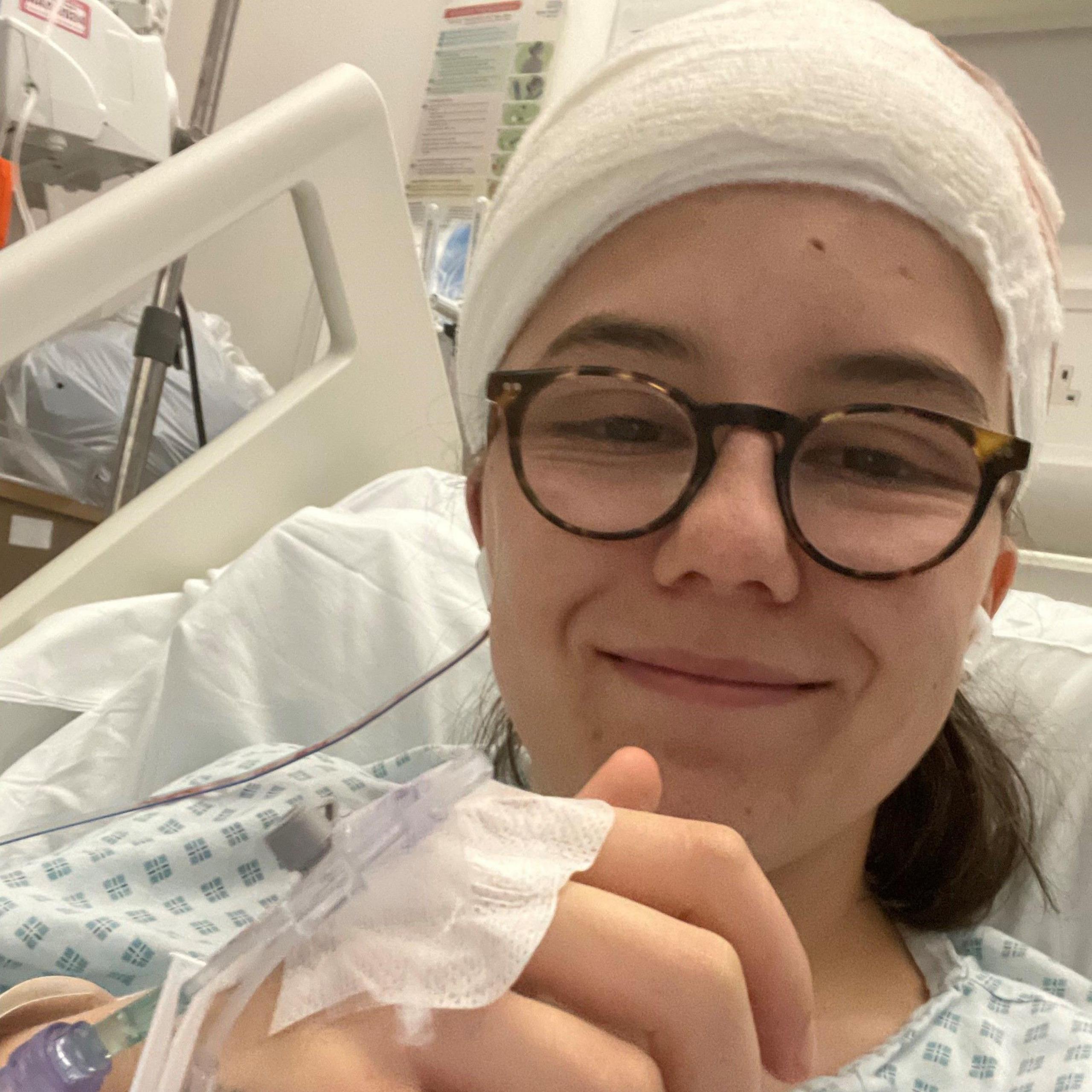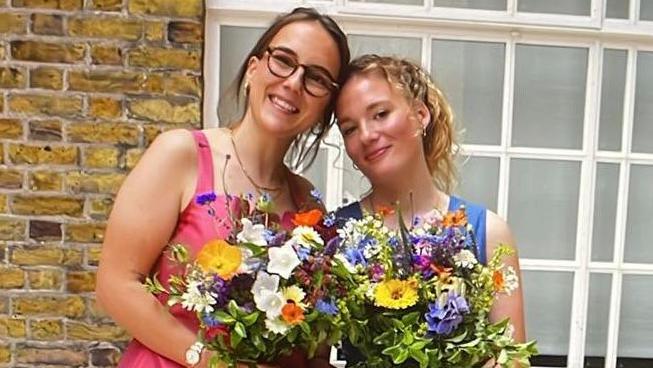'I found out I had cancer via an answer machine'

Jesse Tristram was diagnosed with glioblastoma in 2021
- Published
Jesse Tristram, a 26-year-old from Leyton in east London, found out she had a brain tumour when an automated message gave the game away.
“Within two to three weeks I went from waking up perfectly fit and healthy, just feeling a bit odd, to fighting an often deadly cancer."
She says her symptoms were not clear at first - one of the earliest was an "intense deja vu", which she put down to stress or lack of sleep.
But after cycling to her local swimming pool, she had a hallucination-type flash, a “horrible, disgusting” taste in her mouth, and an overwhelming sense of fear.
“I felt like whatever this was, it was the absolute worst thing that had ever happened to me in my entire life.”
She knew it “wasn’t real” because a celebrity she had never met appeared in her hallucination, so she went ahead with her swim.
But Jesse had further episodes on the way home and later that day into the night.
She called the out-of-hours GP and was told she was experiencing a type of seizure. She was referred to get a magnetic resonance imaging (MRI) scan in the following days.

Jesse underwent several scans over the course of her diagnosis and treatment
Two scans later she was told to go to A&E. A lesion had been found on her brain.
She says she was assured there was nothing to worry about and that “people her age don’t get that type of cancer".
She was given a phone number to call - and the answering machine gave her the information.
“It said ‘Welcome to the Brain Tumour Unit,’ which was how I found out."
She says she and her partner "burst out laughing" - probably from shock - when they realised.
'Cancer maze'
Although initially thought to be “low grade”, Jesse says that within five weeks of her diagnosis it was discovered her tumour had doubled in size.
She describes the NHS cancer pathway, the guide through diagnosis and treatment, as a “cancer maze” after some of her symptoms continued to be dismissed and she was forced to advocate for herself to get necessary treatments.
“They finally gave me a nine-hour brain surgery in my short term memory function on Remembrance Day.”

Jesse's treatment included surgery to remove the tumour plus weeks of radiotherapy combined with chemotherapy, followed by six more cycles of maintenance chemotherapy
Following the surgery and further tests, Jesse’s diagnosis was confirmed as grade four glioblastoma.
“I was told I had one of the deadliest cancers for people under 40,” she says.
Dr Jamie Dean, a leading researcher in this area at University College London, explains that glioblastoma is highly aggressive, with limited treatment advancements in the past 20 years - and an average survival of just 15 months.
'It won't save me but gives me hope for others'
- Published28 August 2024
Brain tumour survivor aims to walk down the aisle
- Published24 October 2024
Boy, six, first UK person in brain tumour drug trial
- Published30 August 2024
Treatment included six weeks of radiotherapy combined with chemotherapy, followed by six more cycles of maintenance chemotherapy.
Despite the odds, her post-treatment scans showed no evidence of disease - an outcome "pretty much unheard of" for glioblastoma, Jesse says.

Jesse married her partner Faith after her treatment for brain cancer
Since then, she has married her partner Faith, bought a flat and moved on in her career.
“All sorts of very normal things that are only kind of abnormal and motivational in the context of the fact that I’m terminally ill,” she says.
“But I’ve just lived a normal life.”
More research needed
Dr Dean's work, supported by Worldwide Cancer Research, explores adjusting radiotherapy intervals based on tumour response, to enhance treatment effectiveness for glioblastoma.
“We really need to increase the amount of resources going into researching the disease,” he says, noting that despite its poor prognosis, glioblastoma research receives comparably less funding than other cancers.
Dr Lynn Turner, Worldwide Cancer Research’s director of research, describes Dr Dean as a "pioneer of glioblastoma research".
"Hearing stories like Jesse’s reminds us all of the importance of this work and the hope it gives to those going through cancer and their loved ones," she adds.
Listen to the best of BBC Radio London on Sounds and follow BBC London on Facebook, external, X, external and Instagram, external. Send your story ideas to hello.bbclondon@bbc.co.uk, external